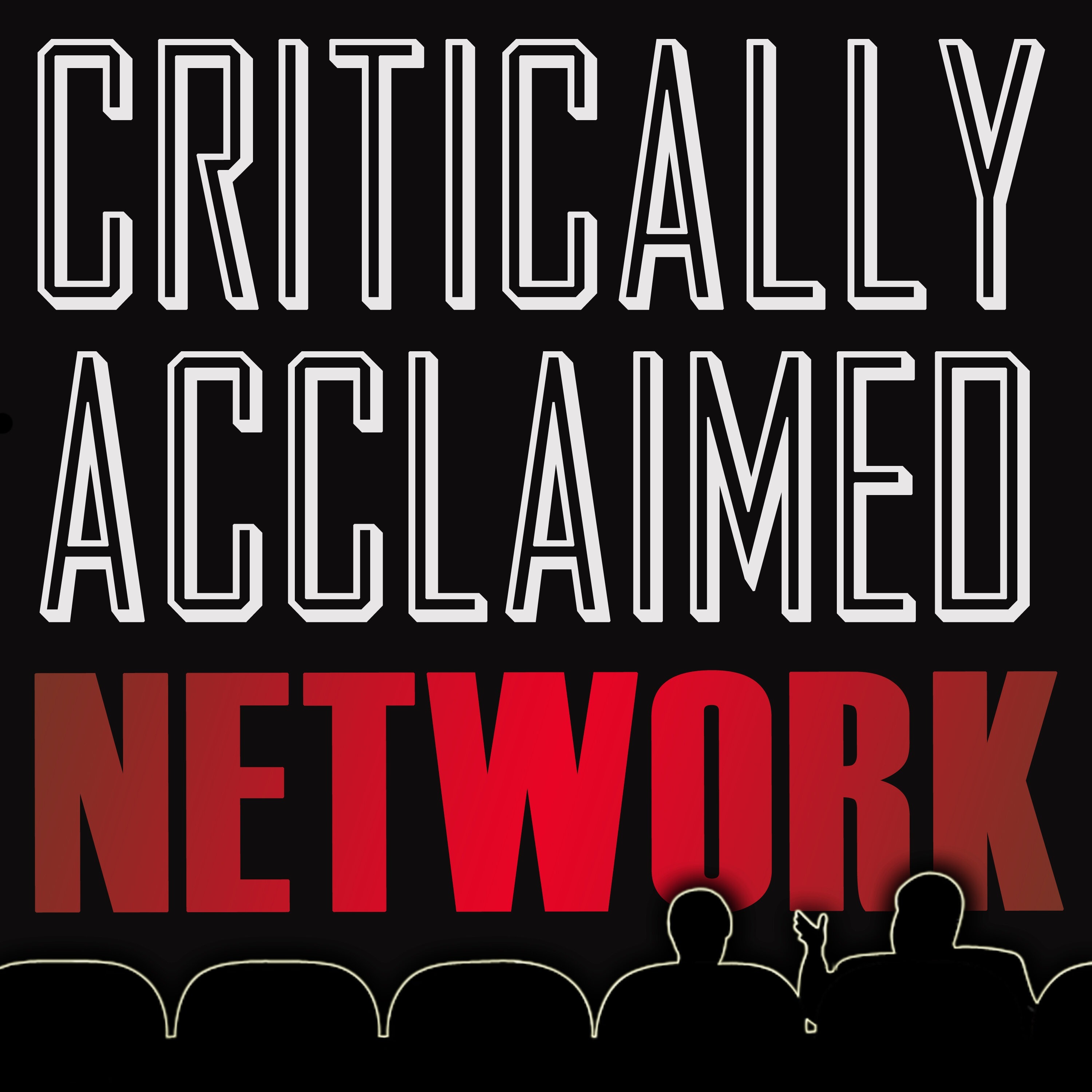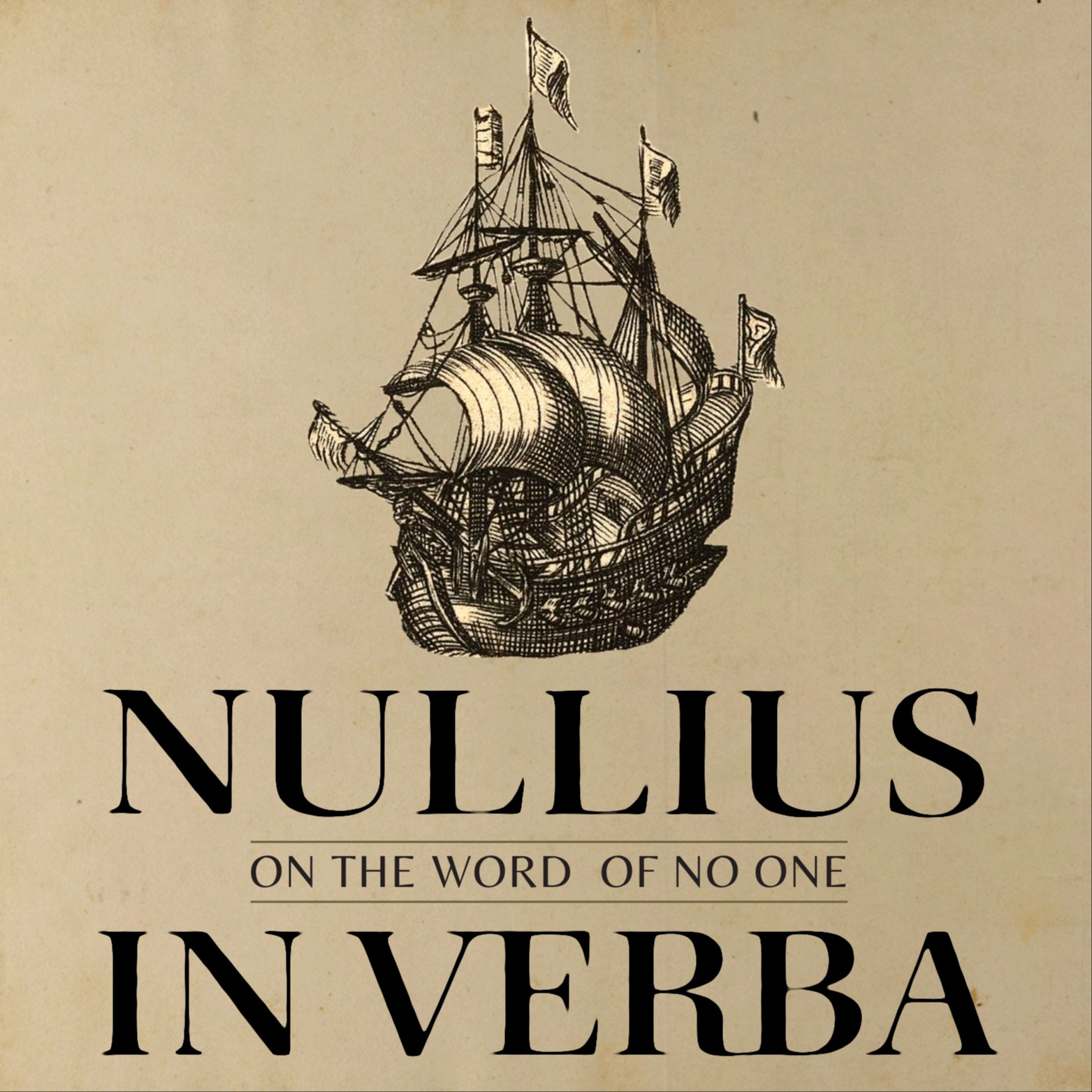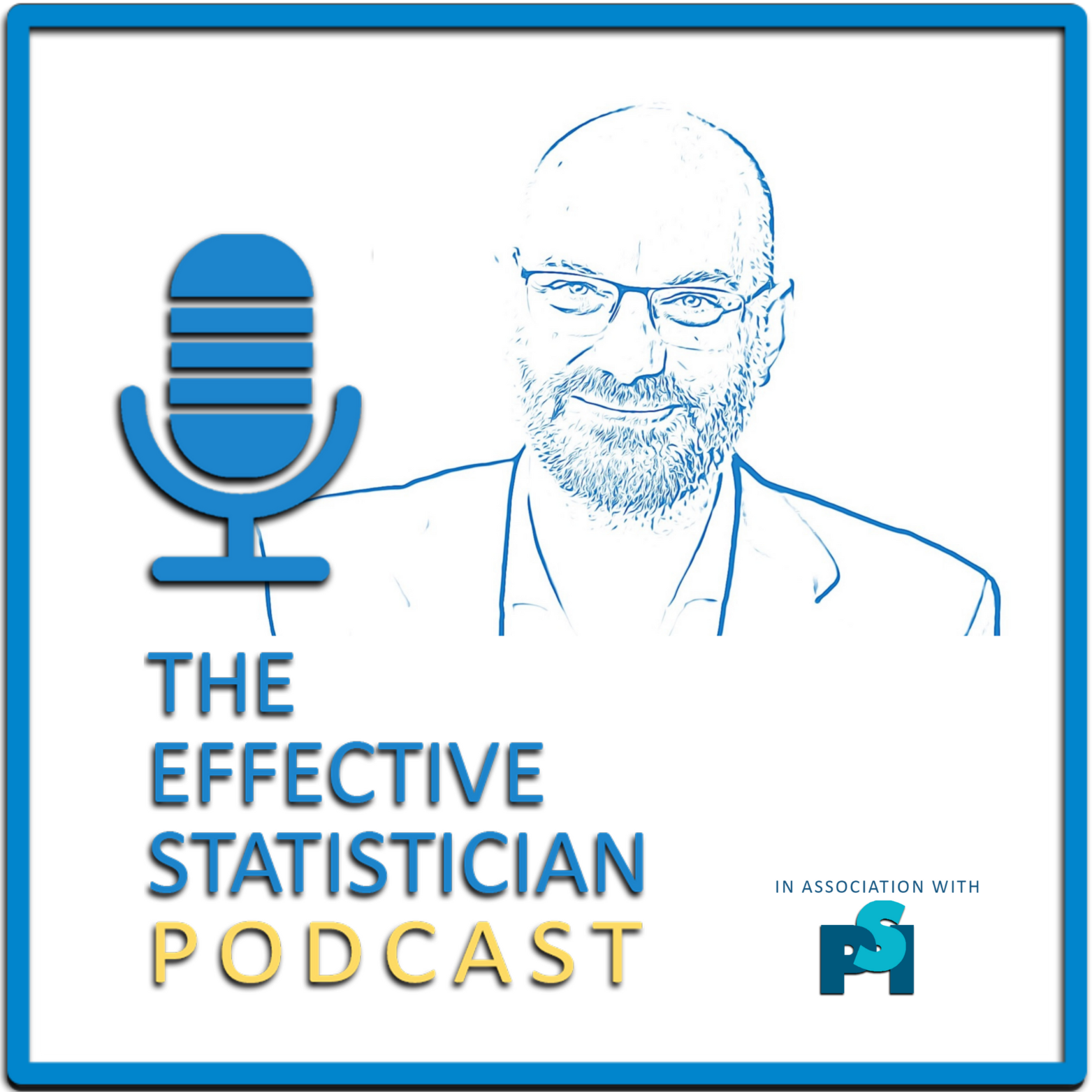Shows

Risky Conversations with Jamie LeeBetting on Yourself, Your Brain Child, and on Open Science with Dr. Joyce Kao and Dr. Heidi Seibold of Digital Research AcademyI'm joined by Joyce Kao and Heidi Seibold, the co-founders of the Digital Research Academy.Joyce and Heidi have an inspiring entrepreneurial journey. As former researchers, they decided to take the leap and co-found the Digital Research Academy, a training network focused on open science and research best practices. In our conversation, they share the challenges they faced in making the decision to build the academy independently and how coaching helped them gain clarity on a key decision for the academy, or their "brain child." Now in their first year, they're see...
2024-12-1338 min
Code for Thought[EN] Digital Research Academy - A Grassroots Network for TrainersThe Digital Research Academy - DRA - was created in 2023 to meet the increasing demand for training in open science and research. In this episode I talk to the two founders, Heidi Seibold and Joyce Kao, as well as members like Yeganeh Khazaei (Yegi) and Danny Garside. https://digital-research.academy the home page of the DRAhttps://digital-research.academy/train-the-trainer/ Train the Trainer programme https://events.digital-research.academy/event/41/ the next Train the Trainer program in summer 2024, Delft NLhttps://openscienceretreat.eu Open Science Retreathttps://mastodon.social/@digiresacademy/ Mastodonmailto:hello@digiresacademy.org the email addresshttps://www.linkedin.com/co...
2024-07-1634 min
Code for Thought[DE] deRSE24 - Die RSE Konferenz in WürzburgDie diesjährige Konferenz des deRSE Vereins in Deutschland fand in Würzburg zwischen dem 5.März und 7.März statt.Es gab, wie auch schon letztes Jahr viele interessante Schwerpunktthemen, wie z.B. Continuous Integration oder Teaching RSE. In dieser Folge hört Ihr von verschiedenen TeilnehmerInnen der Konferenz:John Arnold RWTH Aachen - 3min06sJan Küster Universität Bremen - 7min7sUwe Schmitt und Franziska Oschmann - 15min12sGuido Juckeland - 21min30sHeidi Seibold - 27min38sFlorian Goth und Jan Phillip Thiele - 33min10sEin paar Linkshttps://events.hifis.net/even...
2024-03-1943 min
Critically Acclaimed NetworkCritically Acclaimed #264 | Indiana Jones and the Dial of Destiny, Mad Heidi, Nimona, Past LivesWilliam Bibbiani and Witney Seibold return with a giant-sized INDIANA JONES AND THE DIAL OF DESTINY review, and reviews of the new Swissploitation comedy MAD HEIDI, the Netflix animated film NIMONA, and the indie drama PAST LIVES!Indiana Jones and the Dial of Destiny - 1:50Mad Heidi - 1:08:46Nimona - 1:21:34Past Lives - 1:38:36Review Round-Up - 1:50:43 Subscribe on Patreon at www.patreon.com/criticallyacclaimednetwork for exclusive content and exciting rewards, like bonus episodes, commentary tracks and much, much more!
2023-07-042h 00
The Effective Data Scientist3 steps to make your research more reproducible with Heidi Seibold (Episode 8)
Creating reproducible research is crucial for data scientists as it ensures transparency, understanding, and accuracy in the research process. Not only does it help others understand your work, but it also allows for the reproduction and verification of your results in the future.
Heidi Seibold, an expert in reproducible research, suggests three steps for achieving reproducibility:
Document everything
Develop reusable code, and
Share results with others.
By following these steps, you can ensure that your research is reproducible and accessible to anyone who needs it. Share this resource with your colleagues who want...
2023-04-2133 min
Nullius in VerbaEpisode 1: MotivusIn our first episode, we discuss a quote from the preface to The Instauratio Magna (of which Novum Organum is a part), in which Bacon claims that scientists should be motivated to do science for the betterment of mankind, and not for personal motives like fame, fortune, or even fun.
Here is the tweet (by Heidi Seibold) on academia not being aligned with good scientific practices.
An unedited transcript of the episode can be found here.
2023-02-2455 min
Nullius in VerbaEpisode 1: MotivusIn our first episode, we discuss a quote from the preface to The Instauratio Magna (of which Novum Organum is a part), in which Bacon claims that scientists should be motivated to do science for the betterment of mankind, and not for personal motives like fame, fortune, or even fun.
Here is the tweet (by Heidi Seibold) on academia not being aligned with good scientific practices.
An unedited transcript of the episode can be found here.
2023-02-2455 min
The Effective Statistician - in association with PSI3 Steps to Make Your Research More ReproducibleInterview with Heidi Seibold
Document Everything
Create Reusable Code
Share Results with Others
Making sure that your research is reproducible is important in the pharma industry because it allows others to understand what you have done and how you arrived at those conclusions. By following these three steps—documenting everything, creating reusable code, and sharing results—you will be able to make sure that your research is reproducible for anyone who needs access to it now or in the future!
Resource:
Transparimed
Share this episode with your friends and colleagues who can learn from this!
2023-02-2035 min
>reboot academiaOpen Review [EN]Carlos Daniel Mondragon Chapa is a software developer at Open Review. In this episode of >reboot academia we talk about the idea behind Open Review as a platform (promote openness in scientific communication, particularly the peer review process) and how it can be used for journals, events, teaching and more. We also talk about open source and the benefits and hurdles open science platforms face.
Links:
Open Review website: https://openreview.net/about
Open Review GitHub: https://github.com/openreview
Open Review on Twitter: https://twitter.com/openreviewnet
Carlos...
2023-02-0636 min
>reboot academiaRoad2Openness und Open Science FreelancersVerena Heise ist Open Science Freelancerin. Im letzten Jahr hat sie an einem Projekt namens Road2Openness gearbeitet, das Hochschulen unterstützt, ihre Open Science Aktivitäten einzuschätzen. Im Podcast sprechen wir auch darüber, was Verena und mich zusammen gebracht hat und unser gemeinsames Projekt: die Website und Community “Open Science Freelancers”.
Links:
Verenas Website: https://vheise.com/
Verena auf LinkedIn: https://www.linkedin.com/in/verena-heise-5677a757/
Road2Openness Website: https://road2openness.de/
Open Science Freelancers Website: https://open-science-freelancers.gitlab.io/
2022-09-2730 min
>reboot academiaWie gründet man eine Hochschule?Über den Werdegang der CODE University.
Manuel Dolderer ist Mitgründer und Präsident der CODE University of Applied Sciences. Mit ihm habe ich über die Eigenheiten der CODE und über den Ablauf einer Hochschulgründung gesprochen.
Links:
- Website der CODE: https://code.berlin
- Manuel auf Twitter: https://twitter.com/maphido
- Code+Design Initiative: https://code.design
2022-08-021h 02
>reboot academiaNachhaltige und offene InnovationÜber das Einbinden von Menschen in Innovationsprozesse und Design Thinking
Veronka Mohr ist Beraterin für nachhaltige Innovation. Ich habe mit ihr darüber gesprochen, was nachhaltige Innovation eigentlich ist und wie wir mehr Menschen in Innovationsprozesse einbeziehen können. Natürlich ginge es auch darum, was wir aus ihren Ideen für die Zukunft von Forschung und Lehre mitnehmen können. Am Schluss haben wir noch über Design Thinking gesprochen und warum das wichtigste daran das Mindset ist.
Links:
Veronikas Website: https://veronikamohr.com
Veronika auf LinkedIn: https://w...
2022-07-1448 min
>reboot academiaLernen ohne LehrerJan Behrenbeck ist Pedagogy Lead bei 42 Wolfsburg, einer innovativen Coding-Schule ohne Lehrer. Mit ihm habe ich über Lernen ohne Lehrer aber dafür mit Freiheit, Vertrauen und Verantwortung gesprochen.
Links:
Jan auf LinkedIn: https://www.linkedin.com/in/jan-behrenbeck
42 Wolfsburg: https://42wolfsburg.de
2022-05-031h 01
>reboot academiaEvidenz für die GesundheitAriel Stern ist Gesundheitsökonomin im Health Innovation Hub des Bundesgesundheitsministeriums, Associate Professor an der Harvard Business School und derzeit Visiting Professor for Digital Health Economics and Policy am Hasso-Plattner-Institut. Mit ihr habe ich darüber gesprochen welche Änderungen sich im Forschungsprozess ergeben, wenn man digitale Gesundheitsprodukte erforschen möchte und warum es so wichtig ist diverse Perspektiven auf ein Problem zu haben.
Links:
Ariels Website: www.hbs.edu/astern
Ariels Twitter: https://twitter.com/arieldora
Health Innovation Hub: https://hih-2025.de/
2022-04-191h 02
>reboot academiaOpen Science und Qualität der ForschungFinn Lübber ist Doktorand im Social Neuroscience Lab und der Klinik für Rheumatologie und klinische Immunologie der Universität Lübeck. In dieser Episode haben wir über Open Science gesprochen und darüber wie Offenheit zu mehr Qualität führen kann.
Links:
Finns Website: https://social-neuroscience-lab.com/team/finn-lubber/
Finns Twitter: https://twitter.com/finnluebber
German Reproducibility Network: https://reproducibilitynetwork.de/
Open Science Initiative Lübeck: https://osi-luebeck.de/
2022-04-0543 min
>reboot academiaDiversität in der ForschungSylvia Thun ist Leiterin des Competence Center eHealth, Professorin für Informations- und Kommunikationstechnologien, Charité Visiting Professor und Direktorin der Core Unit BIH eHealth & Interoperabilität. Mit ihr habe ich die Situation und Rolle von Frauen in der Wissenschaft gesprochen und darüber wie man Diversität in der Wissenschaft fördern könnte.
Links:
- Sylvias Website: https://mentalhealth.charite.de/metas/person/person/address_detail/thun/
- Sylvias Twitter: https://twitter.com/ProfThun
- SheHealth: https://shehealth.org/
2022-03-2238 min
>reboot academiaResearch Software EngineeringTobias Schlauch ist Research Software Engineer (RSE) am Deutschen Zentrum für Luft- und Raumfahrt. In dieser Episode sprechen wir über die Arbeit als RSE und warum gute Software so wichtig für die Forschung ist. Wir sprechen auch über die Probleme von RSEs derzeit und wie man sie lösen könnte.
Links:
Tobias’ Twitter: https://twitter.com/TobiasSchlauch
Website de-RSE: https://de-rse.org
Research Software Engineers International: https://researchsoftware.org/
RSE beim DLR und die DLR SE-Empfehlungen: https://rse.dlr.de/
The Carpentries: https://carpentries.org/
Research Software Engineering with Python: https://merely-useful.tech/py-rse/
Task Group Forschungssoftware: https...
2022-02-2252 min
>reboot academiaOpen Science, Kollaboration und BibliothekenLambert Heller leitet das Open Science Lab an der TIB - Leibniz-Informationszentrum Technik und Naturwissenschaften, in Hannover. In dieser Episode sprechen wir über die Idee des Open Science Labs, darüber was Open Science mit Bibliotheken zu tun hat und wie man mit Hilfe von Peer Production in kurzer Zeit viel erreichen kann (z.B. ein Buch in einer Woche schreiben).
Links:
Lamberts Twitter: https://twitter.com/Lambo
Lamberts Website: https://biblionik.org/
Website TIB Open Science Lab: https://tib.eu/osl
Artikel zu #ichbinHanna: https://www.riffreporter.de/de/artikel/wissenschaft-befristung-mittelbau-ich-bin-hanna-bmbf
reboot academia Folge zu #ichbinHanna: https://reboot-academia.podigee.io...
2022-02-0855 min
>reboot academiaStatistik und ReproduzierbarkeitAnja Eggert ist Statistische Beraterin am Forschungsinstitut für Nutztierbiologie (FBN), Dummerstorf. Mit ihr spreche ich über Reproduzierbarkeit in der Wissenschaft, über Statistik und über interdisziplinäre Forschung.
Links:
Anjas Website: https://www.fbn-dummerstorf.de/mitarbeitende/anja-eggert/
Anjas Twitter: https://twitter.com/AnjaEggert42
ORDS Netzwerk: https://www.uni-rostock.de/forschung/nachwuchsfoerderung/graduiertenakademie/netzwerke/ords/
Repro Hack: https://reprohack.github.io/reprohack-hq/
Thüringer Kompetenznetzwerk Forschungsdatenmagement: https://forschungsdaten-thueringen.de
2022-01-2557 min
>reboot academiaGute LehreTom Freudenthal ist Experte für gute Lehre und teilt sein Wissen mit anderen Lehrenden. In dieser Episode sprechen wir darüber, was gute Lehre ausmacht. Tom erzählt von seinen Erfahrungen, seiner Firma, und vor allen Dingen sehr viel darüber wie wir in Zukunft Lehre gestalten sollten. Wir sprechen über das wechseln von Lernmodi, über soziale Aspekte der Lehre und über Spirallernen.
Links:
Toms website: https://tom-freudenthal.de/
Tom auf LinkedIn: https://www.linkedin.com/in/tomfreudenthal/
2022-01-1843 min
>reboot academiaLernmanagementsystem der ZukunftGerd Kortemeyer leitet das Team für Lehrentwicklung und -technologie an der ETH Zürich. Mit ihm spreche ich über seine Ideen für das Lernmanagementsystem der Zukunft. Es geht darum, wie so ein System aufgebaut sein könnte, wie sich das Lernen an Hochschulen in Zukunft verändern könnte und was wir von den jetzigen Systemen (Moodle, Olat und co) lernen können. Gerd und sein Team freuen sich über Mitstreiter:innen, also meldet euch bei ihm!
Links:
Gerds Website: http://gerdkortemeyer.com/
Mehr Infos zum LMS der Zukunft: https://openlcms.org/
VLOG zum Besuch in Zürich: https...
2022-01-0433 min
>reboot academiaStandardisierung und nachhaltige ForschungDagmar Waltemath ist Professorin für Medizininformatik an der Universität Greifswald. Mit ihr habe ich über Standardisierung von Forschung gesprochen, um sie besser nachnutzbar zu machen. Außerdem ging es um Datenintegration und generell nachhaltige Forschung. Am Schluss haben wir noch ein bisschen über wissenschaftliche Karrieren gesprochen.
Links:
Dagmars Website: https://www.fis.med.uni-greifswald.de/FIS/init_person_browser.action?pers_id=ngpocpv7uc2ss
Dagmars Twitter: https://twitter.com/dagmarwaltemath
COMBINE: https://co.mbine.org/
HealthECCO: https://healthecco.org/
NFDI4Health: https://www.nfdi4health.de/
2021-12-2155 min
>reboot academiaNeue Konzepte für Arbeit und LehreJörn Apel hilft Unternehmen und Organisation dabei sich kulturell weiterzuentwickeln, insbesondere hin zu New Work und eigenverantwortlichem Arbeiten. In diesem Zusammenhang beschäftigt er sich auch mit der Zukunft des Lernens. Mit Jörn hatte ich ein spannendes Gespräch über New Work im Kontext von Universitäten und Forschungseinrichtungen und eine ganzheitliche Betrachtung von Lernen.
Links:
Remotly: https://www.remotly.io/
Jörn auf LinkedIn: https://www.linkedin.com/in/jörn-apel-3b814287
2021-11-3056 min
>reboot academia#IchBinHanna und das WissenschaftszeitvertragsgesetzSebastian Kubon ist Historiker (Geschichte des Mittelalters und Public History) und hat sich im letzten Jahr mit den 95 Thesen gegen das Wissenschaftszeitvertragsgesetz (#95vsWissZeitVG) und dem Twitter Hashtag #IchBinHanna (gemeinsam mit Amrei Bahr @amreibahr und Kristin Eichhorn @drkeichhorn) einen Namen in der Wissenschaftspolitik gemacht. Mit ihm habe ich über befristete Verträge in der Wissenschaft gesprochen, was für immense Auswirkungen diese haben und was die Alternativen (mehr unbefristete Stellen, weniger kurzzeitige Projekte) sein könnten.
Links:
Sebastian auf Twitter: https://twitter.com/SebastianKubon
95 Thesen gegen das Wissenschaftszeitvertragsgesetz: https://95vswisszeitvg.wordpress.com/
Pressespiegel zu #IchBinHanna: https://ichbinhanna.wordpress.com
95vsWissZeitVG. Prekäre Ar...
2021-11-1649 min
>reboot academiaPlayful & Mindful ResearchAnnika Lübbert ist Doktorandin am Institut für Neurophysiologie und Pathophysiologie des UKE Hamburg und IGDORE Mitglied. In dieser Folge sprechen wir über die „Mindful Researchers“ Initiative und darüber, dass Forschung keine stocksteife Angelegenheit ist.
Links:
- Annikas Twitter: https://mobile.twitter.com/AnnikaLub
- Mindful Researchers: https://www.contemplativecollaboration.org/initiatives/mindful-researchers/
- Playful Academics: https://wearethefuture.net/a-treasure-box-for-the-playful-academic/
- IGDORE: https://igdore.org/
2021-11-0938 min
>reboot academiaKommunikation und InformationClaudia Frick ist Professorin für Informationsdienstleistungen und Wissenschaftskommunikation an der Technischen Hochschule Köln. In dieser Episode spreche ich mit Claudia darüber, was man für gute Wissenschaftskommunikation alles wissen muss. Außerdem erklärt Claudia, dass Bibliothekarin ein cooler und technischer Beruf ist. Wir sprechen zudem über gute Lehre und darüber, dass Wikipedia-Artikel-Schreiben eine coole Prüfungsform sein kann.
Links:
Claudias Twitter: https://twitter.com/FuzzyLeapfrog
Webseite Forschungsstrom: https://forschungsstrom.tv/
Claudias Forschung: https://orcid.org/0000-0002-5291-4301
2021-10-2833 min
>reboot academiaPublizieren und offene BücherChristoph Molnar ist Wissenschaftler und beschäftigt sich mit erklärbarer künstlicher Intelligenz. In dieser Episode spreche ich mit ihm über sein Buch “Interpretable Machine Learning”, das er unter einer offenen Lizenz als Website zur Verfügung stellt. Wir sprechen über die Magie von offenen Lizenzen und darüber wie wissenschaftliches Publizieren in Zukunft aussehen könnte.
Disclaimer: Christoph ist mein Ehemann, weshalb ich schon viele seiner Antworten vorher kannte und auch so viel über ihn weiß. Einige Dinge habe aber auch ich neu von ihm gelernt.
Links:
Christophs Twitter: https://twitter.com/ChristophMolnar
Christophs Website: https://www.mlnar.com/
Buch als...
2021-10-2637 min
Code for ThoughtReproduced in GermanyWelcome back to Season 2 of Code for Thought!Reproducibility is hard and no one knows this better than Heidi Seibold. In this episode Heidi and I talk about the new reproducibility network she helped building in Germany and the many challenges we all face when trying to reproduce scientific output and papers.Find the German reproducibility network onhttps://reproducibilitynetwork.deOr find them on Twitterhttps://twitter.com/germanreproGet in touchThank you for listening! Merci de votre écoute! Vielen Dank für´s Zuhören...
2021-09-0729 min
Open Science StoriesEnd of Season 1 / New Host WantedIt's the end of season 1. It was a lot of fun to set up this podcast, but it is also time for Heidi to move on and make space for a new host. Do you want to become the new host of the podcast? Write a message to opensciencestories@gmail.com or message Heidi on Twitter (@HeidiBaya).
2021-07-0802 min
Open Science StoriesS1E10 Antica Culina - Opening up to Open ScienceThis is a story of a personal Open Science Journey of Ecologist Antica Culina (@antica_c on Twitter). From not knowing anything about Open Science to becoming an active advocate of it, co-founding SPI-Birds database (www.spibirds.org) and SORTEE (https://www.sortee.org/) and serving on the Advisory Boards of several Open Science related initiatives such as https://fairsfair.eu/ or https://openknowledgemaps.org/ . In this episode, Antica also discusses the difference between Open and FAIR data.
2021-07-0809 min
Open Science StoriesS1E9 Emilio Dorigatti - Sharing source codeThis story comes from Emilio Dorigatti (@edorigatti) and shows how the code that was used for research can give so much more information on a research project than just the paper.
Emilio shares his thoughts in a blog. Check it out! https://e-dorigatti.github.io
2021-06-2405 min
Open Science StoriesS1E8 Lisa Barros de Andrade e Sousa - Expressing criticism in scienceIn today’s episode Lisa Barros de Andarde e Sousa discusses her difficulties in gaining new scientific insights by building on previous research results and how a change in the culture of criticism in science can help to accelerate scientific progress.
Lisa obtained her PhD in Bioinformatics from the Free University of Berlin as part of the International Max-Planck Research School for Computational Biology and Scientific Computing. She is currently working as an Artificial Intelligence Consultant at Helmholtz AI, where she helps to democratize the access to AI for fellow researchers by making applied machine learning and de...
2021-06-0307 min
Open Science StoriesS1E7 Miguel Xochicale - A personal Open Science journeyIn this episode, Miguel Xochicale, will take you into his journey of practicing Open Science: a journey that is still in progress.
You will hear about how he got interested in GNU/Linux OS through the limitation of closed software, the little to none accessibility of open access knowledge from his non-private education, the publication of his open access and reproducible PhD thesis, to then finalise on his current endeavours on making a science that aligns to the principles of reproducibility, inclusiveness, transparency, reusability and open accessibility.
You can reach Miguel on Twitter (@_mxochicale) and...
2021-05-1204 min
Open Science StoriesS1E6 Russell T. Warne - How Open Data advances scienceThis story is about the power of open data to create new knowledge. Archival data and summary statistics can be re-analyzed to investigate research questions or use methodologies that did not exist when the original data were collected. As a result, old data and research can still advance scientific progress and produce new discoveries.
Today’s story comes from Dr. Russell T. Warne, who is an associate professor of psychology at Utah Valley University who teaches courses on statistics, research methodology, psychological testing, and human intelligence. You can find him on Twitter (at @Russwarne) and Facebook. Dr. Wa...
2021-04-2905 min
Open Science StoriesS1E5 Luiza Bengtsson - Art for Science CommunicationLuiza Bengtsson presents a story about an art-science collaboration conducted to explore the future of genome editing. The story showcases the opportunities and the difficulties of interdisciplinary work, particularly when emotions (art) are used to make scientific research tangible.
The artist Emilia Tikka spent three months in the Max-Delbrück-Center for Molecular Medicine research labs to research and create a proof-of-concept for her art piece. The result: “ÆON – Trajectories of Longevity and CRISPR“ has been enthusiastically received by audiences in Berlin, Cambridge and Stockholm and has served as a discussion primer for an European public dialog on genome e...
2021-04-1509 min
Open Science StoriesS1E4 Sally Rumsey - Rights RetentionThis story traces Sally Rumsey’s personal history of open access support in UK universities, culminating in a role within cOAlition S that includes promoting the benefits of its Rights Retention Strategy.
https://www.coalition-s.org/rights-retention-strategy/
2021-03-2511 min
Open Science StoriesS1E3 Omer Markovitch - Open HardwareOmer Markovitch (@OmerMarkovitch) and his colleagues have developed a new scientific device for automatic stirring of experiments, and have made it openly available so that others can reproduce or tinker it.
Read the blog in Nature Research Chemistry Community.
Download the design files for 3D printing the device here.
To know more about Omer’s own research you could check out this YouTube, or this interview.
2021-03-1108 min
Open Science StoriesS1E2 Claudia Frick - Open Peer ReviewThis is a story about mistakes and the revealing nature of Open Science that sometimes might be scary but is always worth it.
Today’s story comes from Claudia Frick, who is a professor at the University of Applied Sciences in Cologne in the fields of information services, science and scholarly communication. You can find her on Twitter, TikTok, and Twitch under @FuzzyLeapfrog. She is part of Forschungsstrom, a science communication project on Twitch.
Read the article and its peer review comments here.
2021-02-2509 min
Open Science StoriesS1E1 Heidi Seibold - Open science is science done rightIn this episode Heidi talks about her story of how she got into science and into open science.
Stay tuned for upcoming episodes with guests who tell stories about Open Peer Review, Open Hardware, and many more!
Find Heidi on Twitter: https://twitter.com/HeidiBaya
2021-02-1104 min
Open Science StoriesSeason 1 TrailerOpen Science Stories trailer and call for contribution.
Want to tell your story? Message me: opensciencestories@gmail.com
You can either tell your story by talking yourself or you tell me your story and I will tell it to the world :)
2021-01-0501 minOpen Science RadioOSR059 OpenML [EN]Open Access Week is on and this year’s motto is „Open in Action“. Thus we’ll take the chance to feature a really interesting open science project we’ve recently stumbled upon: OpenML. OpenML sets out (and actually already achieved) to make machine learning available to a broader audience (especially scientists) and build a platform to create, share, evaluate and use machine learning algorithms. We took the chance to talk to Heidi Seibold and Joaquin Vanschoren about the project’s history, current state and future plans! Feel invited to give OpenML a chance, test it, or contribute to it. For now...
2016-10-2848 min